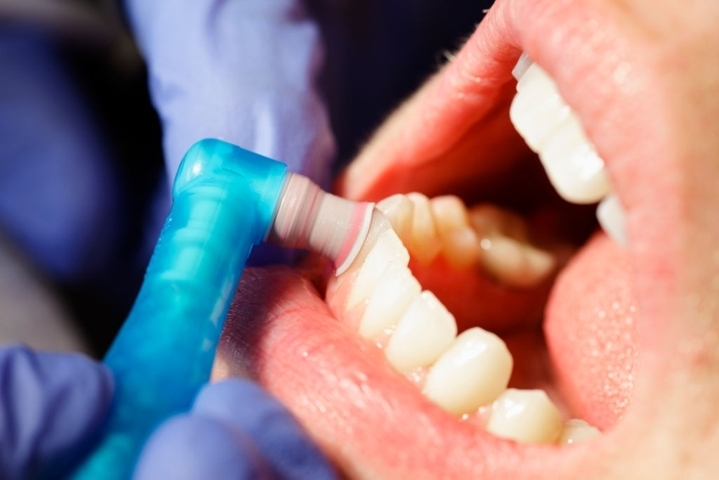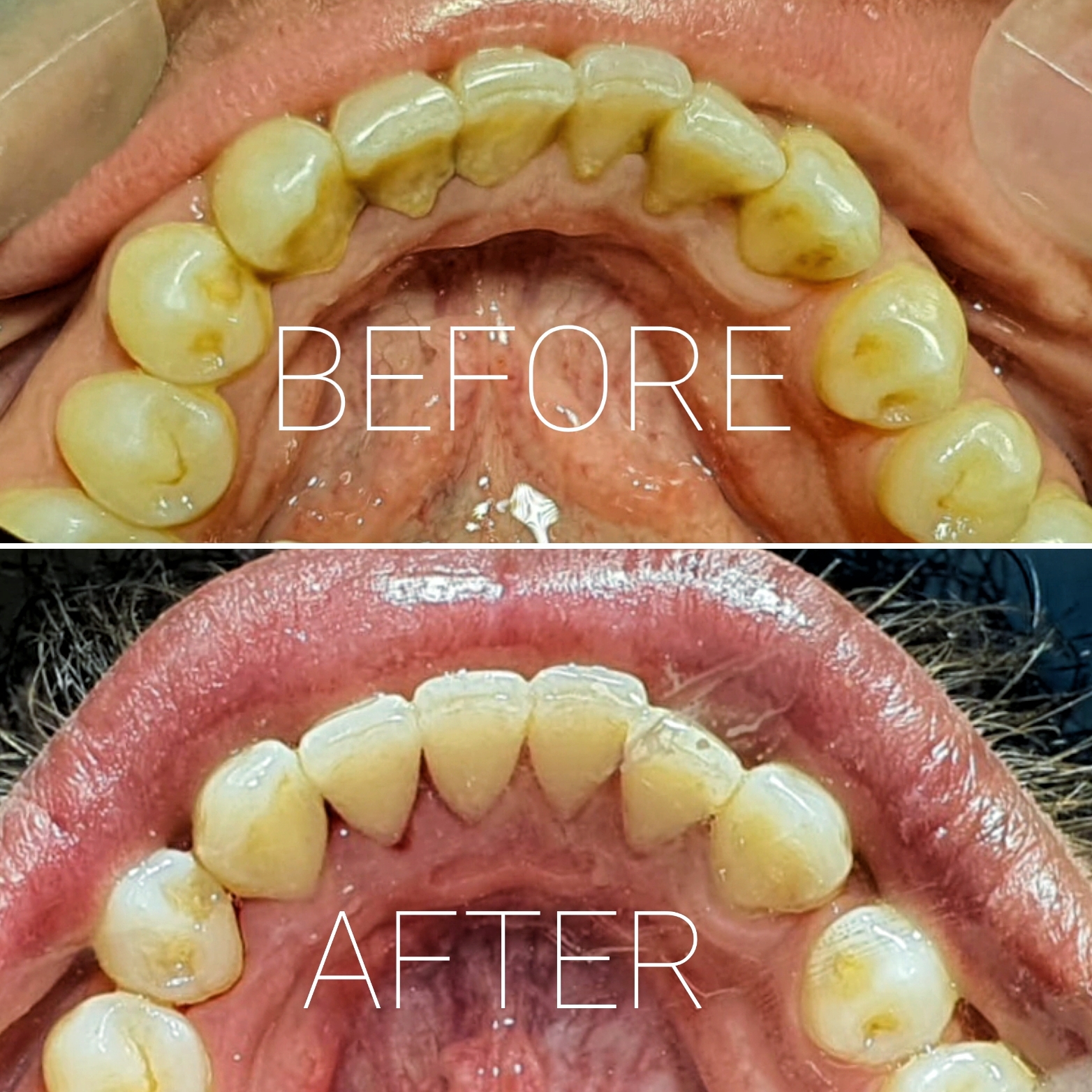
Let us brighten your smile!
Nobody likes their teeth getting pale and stale. Stained or discolored teeth can hinder your smile. Scaling, polishing, and teeth whitening brightens up your teeth and this should be done under the care of a dentist. Visit a dentist and get your dental problems resolved.
What is scaling and polishing?
People often seek shortcuts to brighten their teeth at home. Some resort to applying soda while others try to rub the banana peel on their teeth to make them glossy. These are more like myths than home remedies and can do more harm than good to your teeth. If you want clean teeth, get it done professionally by a dentist/dental hygienist. Dr.Shoaib Durrani at Durrani’s Dental Clinic, for example, briefs his patients about the hazards of getting fooled by such remedies because he values you and your overall wellbeing.
Improper brushing and cleaning of the oral cavity can lead to a whitish soft, slimy layer (plaque) that can form on the surface (especially towards the side of the tongue) of your teeth. As poor oral hygiene continues, this layer can turn into a solid yellowish layer (calculus or tartar), leading to many dental problems such as gum disease, tooth decay, bad breath/halitosis, and other health issues.
Getting your teeth and gums cleaned by a dentist (or a dental hygienist) is called scaling and polishing. The plaque/ calculus is removed using ultrasonic scalers to break the calculus into pieces (scaling). Then, the surface of teeth is polished to remove minor stains using a rotating rubber cup or rotary brush against the surface of teeth after applying a polishing compound.
Is scaling and polishing painful?
Scaling and polishing offer the least discomfort and pain when done while following the correct procedure protocols. The only thing that might bother the patient is slight sensitivity, which very rarely follows treatment but resolves within 24 to 72 hours by following the dentist’s proper instructions.
This dental treatment is only painful when oral hygiene has been neglected by the patient for too long, with swollen, sore, and bleeding gums. The calculus/ tartar might be so deep that it may denude the root in the oral cavity after cleaning, which requires more extensive and expensive dental treatments; hence to avoid pain, it is best to visit a dental clinic regularly.
Save yourself from the pain and money by visiting the best dentist near you regularly. We, here at Durrani’s Dental Clinic, offer the best possible dental care; call us at +92-21-37227441 to book an appointment with one of our top dentists (Dr. Shoaib Durrani).

The benefits of scaling and polishing teeth:
Scaling and polishing regularly can help you maintain your oral hygiene and saves your oral tissues from several dental problems. During this procedure, your teeth are cleaned and the harmful bacteria are removed from your mouth.
Enlisted are a few benefits of scaling and polishing;
- Clean, smooth, and glossy teeth.
- Gum bleeding issues are resolved.
- Sore and swollen gums are treated.
- Teeth are saved from many dental problems.
- Oral hygiene is maintained.
- Freshens up the breath.
- Brightens up your smile.
Good oral health leads to a healthy lifestyle, which is essential for everyone.
How often should scaling be done?
Dentists worldwide recommend scaling and polishing done after every six months to maintain optimal dental hygiene. Initial plaque and consequent calculus buildup are usually invisible to the naked eye, even if your brushing is good.
If you are undergoing certain dental treatments like braces or have any dental problems (such as periodontitis), you may need to get scaling done as often as three times a year. It is best to visit your dentist regularly and get routine check-ups done so that they can see what is going on inside your mouth and suggest treatment accordingly.
Where your eyes might not reach, there can be some breach!
Are teeth polishing the same as whitening?
There is a huge difference between teeth polishing and whitening.
Teeth Polishing is a procedure done right after scaling; the purpose is to remove any leftover minor stains. A very mildly abrasive fluoride-containing material (special pastes) is usually used on the teeth’ surface in a rotating motion by a rubber cup or micro-brush to polish the surface, making the teeth shiny and glossy.
Teeth Whitening is largely different from polishing as it lightens and brightens the natural shade of teeth or even makes them whiter than before! It involves the application of a Laser-activated Teeth Whitening agent that is done at the clinic by the dentist (in-office treatment) or at home by the patient by using a teeth whitening/bleaching kit provided by their dentist.
Both treatments are done to make you smile more. Neglecting your oral hygiene can cost you your money and your health. We don’t want that. Right?




